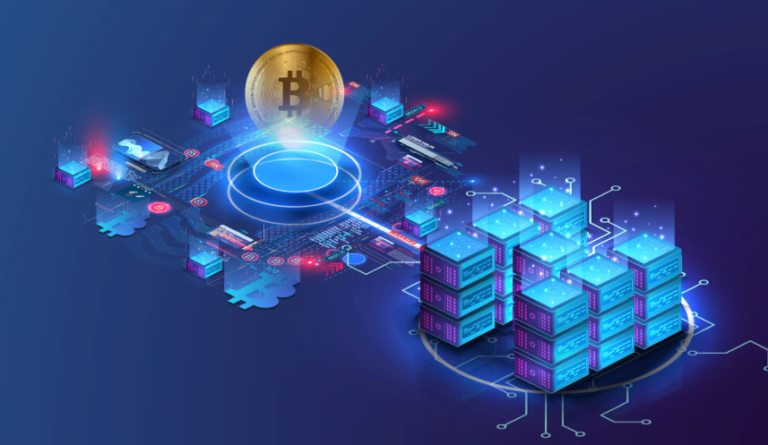Top 10 Emerging Technologies You Should Know About
In today’s fast-paced digital world, keeping up with technological advancements is more important than ever. Emerging technologies are reshaping how we live, work, and interact with the world around us. From Artificial Intelligence to renewable energy breakthroughs, these innovations hold the key to future progress and opportunities. In this article, we’ll explore the top 10 emerging technologies you should know about to stay ahead of the curve.
1. Artificial Intelligence (AI) and Machine Learning
Artificial Intelligence (AI) is no longer just a concept from science fiction. It involves creating smart machines capable of performing tasks that typically require human intelligence, such as recognizing speech, making decisions, and translating languages. Machine Learning (ML), a subset of AI, enables systems to learn and improve from experience without explicit programming.
Key Applications
AI powers voice assistants like Siri and Alexa, recommends content on streaming platforms, and enables autonomous vehicles. Industries including healthcare, finance, and manufacturing benefit hugely from AI-driven automation and predictive analytics.
Impact on Industries
AI is transforming industries by improving efficiency and decision-making. In healthcare, AI assists in diagnostics and personalized treatments. In finance, it helps detect fraud and optimize trading. This technology is a game-changer for productivity and innovation.
See also: How Artificial Intelligence is Transforming Everyday Life
2. Quantum Computing
Quantum computing leverages the principles of quantum mechanics to process information in ways classical computers cannot. Unlike traditional bits, quantum bits (qubits) can exist in multiple states simultaneously, offering exponential processing power.
Potential Use Cases
Quantum computers promise breakthroughs in cryptography, drug discovery, climate modeling, and complex optimization problems that are currently unsolvable by classical machines.
Challenges
Despite its promise, quantum computing faces hurdles like qubit stability, error rates, and the need for specialized hardware, which researchers are actively working to overcome.
3. 5G Technology
5G is the fifth generation of wireless communication technology, promising ultra-fast internet speeds, minimal latency, and the capacity to connect billions of devices seamlessly.
Benefits Over Previous Networks
5G supports advanced applications like real-time virtual reality, smart cities, and autonomous vehicles by providing reliable, high-speed connections with low latency.
Future Prospects
As 5G networks expand globally, they will enable innovations in IoT, telemedicine, and immersive entertainment, unlocking new possibilities in everyday life and business.
4. Blockchain and Decentralized Finance (DeFi)
Blockchain technology offers a decentralized, tamper-proof ledger for transactions, providing transparency and security without intermediaries.
Rise of DeFi
Decentralized Finance (DeFi) uses blockchain to create financial systems independent of traditional banks, enabling peer-to-peer lending, borrowing, and trading with reduced costs.
Industry Applications
Beyond finance, blockchain enhances supply chain transparency, secures voting systems, and protects digital identities, promising greater trust and efficiency.
5. Extended Reality (XR): AR, VR, and MR
Extended Reality (XR) is an umbrella term encompassing Augmented Reality (AR), Virtual Reality (VR), and Mixed Reality (MR). These technologies blend the physical and digital worlds to create immersive experiences.
Differences Between AR, VR, and MR
- AR overlays digital content on the real world (e.g., Pokémon GO).
- VR immerses users in a fully virtual environment through headsets.
- MR combines real and virtual worlds interactively.
Applications
XR is revolutionizing gaming, training simulations, education, and remote collaboration, providing interactive and engaging experiences like never before.
6. Autonomous Vehicles and Advanced Robotics
Autonomous vehicles use sensors, AI, and advanced algorithms to navigate without human intervention, promising safer and more efficient transportation.
Robotics in Manufacturing
Robots are increasingly sophisticated, handling complex assembly tasks, precision work, and hazardous environments in factories, boosting productivity and safety.
Safety and Ethical Concerns
While promising, autonomous tech raises questions about job displacement, decision-making ethics, and regulatory frameworks that society must address.
7. Internet of Things (IoT) and Smart Devices
IoT connects everyday objects to the internet, enabling them to send and receive data. This technology powers smart homes, wearables, and smart city infrastructure.
Smart Homes and Cities
IoT devices can automate lighting, heating, and security in homes, while cities use sensors to manage traffic, energy use, and waste more efficiently.
Security Challenges
With increased connectivity comes heightened risk of cyberattacks, making IoT security a critical focus area for developers and users alike.
8. Biotechnology and Gene Editing
Biotechnology is transforming medicine and agriculture through advances like CRISPR, a powerful gene-editing tool that allows precise modifications to DNA.
Medical Breakthroughs
Gene editing opens new frontiers in treating genetic disorders, cancers, and infectious diseases, offering hope for cures and personalized therapies.
Ethical Issues
The power to edit genes raises ethical questions about consent, long-term effects, and potential misuse, demanding careful regulation and debate.
9. Renewable Energy Technologies
As the world shifts to sustainable energy, innovations in solar, wind, and battery storage technologies are making renewable energy more efficient and affordable.
Energy Storage Solutions
New battery technologies enable better storage of intermittent renewable power, stabilizing supply and supporting grid resilience.
Environmental Impact
Renewables reduce carbon footprints and pollution, playing a crucial role in combating climate change and promoting environmental sustainability.
10. Edge Computing and Cloud Advancements
Edge computing processes data near its source rather than relying solely on centralized cloud servers, reducing latency and bandwidth use.
Benefits to Data Processing
Edge computing supports real-time applications like autonomous vehicles, smart grids, and industrial automation by enabling faster decision-making.
Cloud Evolution
Cloud services continue to evolve with improved security, scalability, and integration, complementing edge computing to deliver powerful hybrid solutions.
FAQs About Emerging Technologies
1. What are emerging technologies?
Emerging technologies are new innovations that are currently developing or expected to be widely adopted soon, reshaping industries and lifestyles.
2. How do these technologies impact daily life?
They improve convenience, efficiency, safety, and connectivity across various aspects such as healthcare, communication, transportation, and entertainment.
3. Which industries benefit most from emerging technologies?
Industries like healthcare, finance, manufacturing, agriculture, and energy experience significant transformations through these innovations.
4. How can I stay updated on emerging technologies?
Follow technology news, research publications, attend conferences, and engage with professional networks to keep abreast of new developments.
5. Are these technologies safe?
While promising, emerging technologies carry risks including security vulnerabilities and ethical concerns, which require careful management and regulation.
6. What skills are needed to work with emerging technologies?
Skills in data science, programming, AI, cybersecurity, engineering, and ethical reasoning are valuable for careers in these advancing fields.
Conclusion
The top 10 emerging technologies you should know about are not just shaping our present—they’re defining the future. From AI and quantum computing to renewable energy and biotechnology, these advancements hold the potential to revolutionize every industry and aspect of life. Staying informed and adapting to these technologies is essential for individuals, businesses, and societies eager to thrive in the rapidly evolving digital era.



